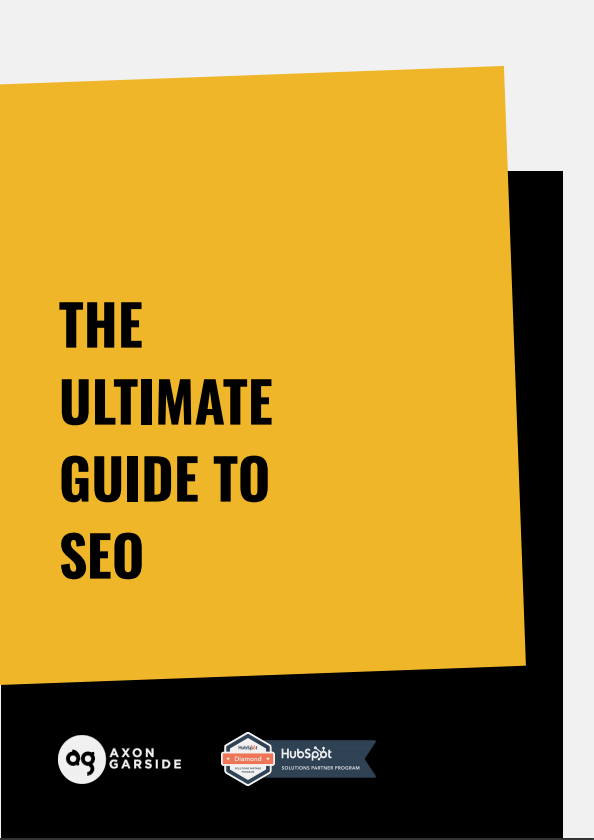3 Things Every Marketer Needs To Know About B2B Keyword Research
Trying to do some B2B keyword research but feel like you’re missing something? Here’s 3 things we think every marketer in the UK should know.

With a staggering 75% of users not scrolling through to the second page of their search engine, without a targeted, planned approach to B2B keyword research, your SEO strategy could have failed before it’s even truly begun.
When building your search engine optimisation (or SEO) strategy, it might feel easier to simply choose keywords you think are relevant and target them without doing any research. This approach might be time effective, but this could be harming your business in the long run.
To make sure you’re ranking as highly as possible for all of your keywords and hitting the first page of their results, you need to understand how to research keywords.
You might be asking yourself, why is hitting the first page so crucial? Well, consider how you use your search engine of choice, how often do you scroll to the bottom of the first page let alone click on page 2? Google’s first results page accounts for anywhere between 71-92% of all traffic. This stat itself comes from the top-ranked search result for this query.
Fundamentally, we all search lazily. If you want to get people on your site, you have to do the hard work. So here are 3 top tips that we think every marketer should know about B2B keyword research for SEO optimisation.
Tip 1: Know your audience
Like any inbound campaign, you need to know who you’re talking to. And, while you’ll have a persona in mind for who this content will be aimed for and what their issue is, what will they search for?
With a whopping 59% of B2B marketers believing that SEO has the biggest impact on their lead generation goals, ultimately knowing your audience and what they’re looking for can give your site the boost it needs to become discoverable by a wider pool of potential customers. It goes beyond simply getting a wider pool, getting ranked first could open the door to hundreds of continuous and dependable monthly visitors to your site. It will greatly improve your ability to regularly convert leads.
A simple way to truly understand what your clients are looking for is by holding a brainstorming session.
Do this by putting yourself in the shoes of your ideal customer and thinking about:
- What their problem would be.
- How you would provide them with a solution.
- What they would search for.
At first, do this internally, picking the brains of your client-facing teams and using their knowledge to pull together initial research. This is just the starting point, it isn’t comprehensive.
If you really want to get that competitive edge, speak to your customers and prospects directly. As experts in your field, you likely use language and terminology that may not be widely adopted by people seeking to solve their problems. You need to understand the language used by your customers to search for solutions.
With this in mind, think about what your products or services do to solve those problems and what keywords you need to target to engage with the right audience.
For example, if your persona wanted to look for more information on B2B keyword research, some related queries could be:
- B2B SEO (200 searches per month)*
- Understanding SEO (70 searches per month)*
- How to best target your audience with keyword research (10 searches per month)*
*UK Searches
While there are tips on how to create more targeted buyer personas using SEO data, having an outline of who your target audience is and what they’re searching for can help you begin to create more targeted content using B2B keyword research using ‘low volume’ keywords.
Tip 2: Low volume doesn’t mean low importance
After figuring out what your persona will be searching for, when discovering their worth in keyword research tools, such as Ahrefs, you may be surprised to find that some of the keywords you think are important don’t have high volumes of searches per month.
For example, although ‘B2B keyword research’ has a low monthly volume in Ahrefs, by targeting this keyword throughout the copy, I have a better chance of ranking on the first page of that SERP, or Search Engine Result Page.
By targeting well-research keywords that are important to your persona, you’re not only increasing your chances of ranking highly on search engines, you're also speaking their language.
For example, while I could try and rank simply for ‘SEO’ in this article, ultimately a lot of people searching for that term could simply be trying to find out more about the subject or want to understand more about search engine optimisation from a B2C perspective. By targeting specific keywords that you know your persona will look for, you will be increasing the chances of the right person finding your company at the right time.
Tip 3: Statistics aren’t static
When conducting your B2B keyword research, you’re probably looking for higher numbers. While we’ve previously discussed how a low search volume doesn’t mean that that keyword is of low importance to your persona, similarly, this does not mean that this term won’t have a higher value in the future.
Much like a variety of trends, the search volume of keywords can also fluctuate in time.
For example, using Google Trends, we can see that the search volume for SEO has grown in the last 5 years. With a spike during January 2020, there was a significant increase in the number of people throughout the UK searching for search engine optimisation, and therefore the previously low-searched term brought an influx of visitors to their sites.
What does this mean for you? Well, if you’re ranking highly for a low-searched term, this does not mean it will stay low forever.
By targeting specific keywords and ranking highly for them, if they become high-value down the line, your website will hopefully be in the top 5 results on their SERPs, giving you access to more potential customers.
Alternatively, however, it is possible that the value of some keywords could drop over time. Therefore, in order to better understand how to continually optimise your website, keep track of specific keywords and trends that are relevant to your company. By staying proactive in your SEO efforts, you can try to ensure you’re at the right place at the right time for your potential clients.
Understanding the importance of SEO
Ultimately, when doing your B2B keyword research, you need to understand the importance that SEO plays in your business. In the digital age, SEO is your place on the digital high-street. You want an address that provides the most ‘foot traffic’. You want to be next to the train station or the town centre because people aren’t willing to travel. Getting on the first page of Google is the digital equivalent. Most people simply aren’t willing to travel to the second page. Improving your SEO ranking will have a demonstrable impact on website visitors
While search engine optimisation can seem overwhelming, with the right information and keyword research performed, your website can easily be optimised for search engines.
Although this is best done with an SEO strategist, having an understanding of how SEO works allows you to build a clear, coherent plan for how to boost your content.
Whether you apply this technique to either existing or new copy, by utilising the power of SEO and B2B keyword research, you can help climb the rankings and help meet your ideal customers at the right place at the right time on the web.


